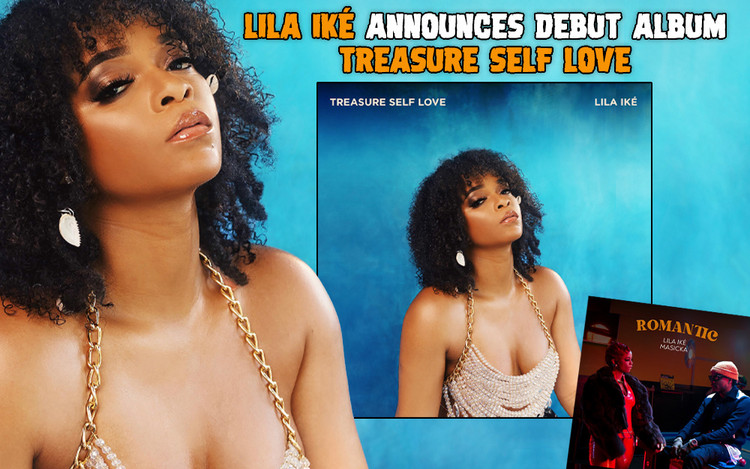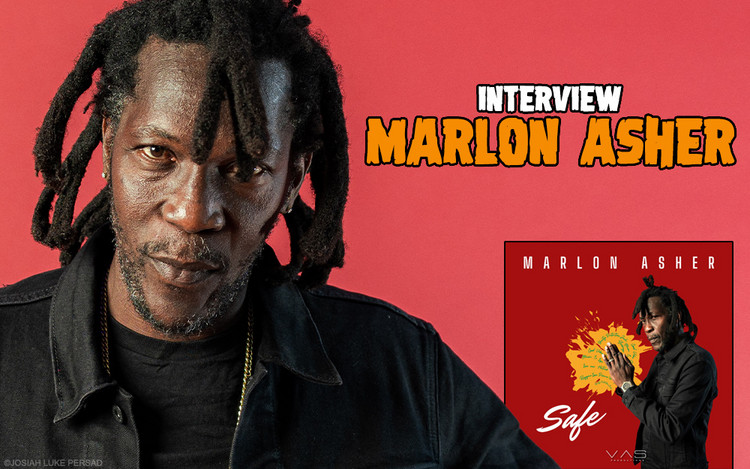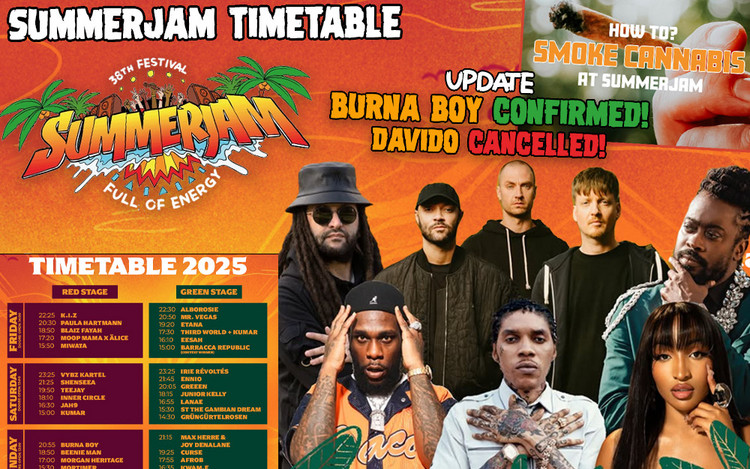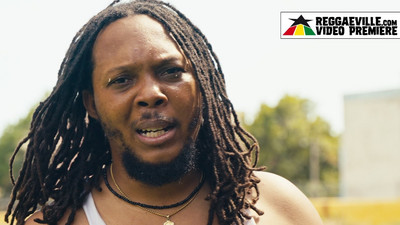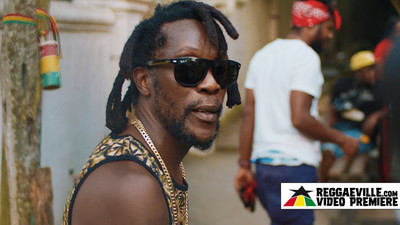Tippa Irie ADD
Interview with Tippa Irie [Part 2]
07/22/2016 by Angus Taylor
![Interview with Tippa Irie [Part 2]](/fileadmin/news/tippa-irie-interview2016two-800.jpg)
In part 2 of our full career interview with Tippa Irie, he talks about going on the road with Saxon, pop success with Greensleeves and his mixed experiences with major labels…
When you joined Saxon they already had quite a lot of notable people there like Levi, Maxi Priest and Peter King. Did you know them already?
No, but to me it was just dances. It wasn't like you'd go there and it was like "Who is this guy?" You'd go over there and people had just got to respect your talent. If you could deliver then people can say what they want to say but you're delivering. At the end of the day nobody could tell Musclehead "Who is this guy? We don't want him here!" They saw my talent. Dennis Rowe was the main guy really. Dennis was the man that was infectious, who gathered us altogether and really showed us the love. He really cared about us. Dennis was the man that really kept us all together.
So was Musclehead more on the business side and Dennis more of the creative director?
I think so. Well, Lloyd was always kind of here and there. One minute you see him next minute he's on holiday - if you understand what I mean! He wasn't around a lot. It was more Dennis and Trevor Sax.
How did your sister Miss Irie get involved with Saxon?
It was just because of me. Miss Irie was at the dances, she was passionate about the music and we were together. When I was writing my lyrics a lot of the time she was there and I used to help her write her lyrics. She just got into the sound because I was there and she was my sister basically. She just practised and we practised and rehearsed together and when she went to the dances she delivered. Then we did a couple of songs together. One track was on my Ah Me Dis album. Me Never Go Down Deh So. We used to do these kinds of lyrics in live combinations. We had about three or four of them that we did. So she just got on the sound because of that - because I was her brother!
Was it a very collaborative situation with the other talent? You used to go to Dennis's house and vibe together.
Yeah, very much. We always used to try to outdo each other and I think that's what made it competitive. That's what set us above a lot of the other sounds because nobody could dispute the talent that was there. We used to get one over on a lot of sounds because we had the music, we had exclusive tunes from Jamaica and we had the MCs who had very good lyrics.
If Lloyd Musclehead and Dennis thought you had talent they would ask you to come on the sound. And that's basically what they did. They just recruited whoever they saw that had talent. My sister had talent so it wasn't a problem. If you could go on the mic and get the crowd going then you were alright. A lot of the other sounds, what was difficult for them was that we had a lot of good MCs. Everybody had a unique style. You have Smiley and Asher who came through and who were two very unique and talented MCs. But then you had the Famous Five which was Tippa Irie, Papa Levi, Daddy Rusty, Sandy and the Colonel - which were like the headstone. Then you'd have my sister Miss Irie, Junior Sandy, Simeon who was from Gloucester and Deadly Ranks, as he was called then. And there were other MCs on Saxon before we got there.
Then they had the singers as well.
Yeah of course. You had Maxi, Roger Robin, Neville Morrison also was a cousin of the family so he was around. You'd have Sugar Merchant who was a great singer. I think he was the front man for a rock group who supported U2. You had people like Waterhouse, Multi Blind who came from Jamaica. He was about for a while. He used to go out with my sister for a while. Singers-wise, it was mainly those guys.
Before Saxon started to strike outside of the UK, which memorable clashes and dances were a big thing for you?
Obviously, the dances against Coxsone at People's Club. Because we were still like the younger youths, the upstarts. You had Blacka and them, they always used to try to bully us because we were younger than them. So the clashes of Peoples Club were memorable. Then you had clashes against Young Lion in Battersea. We used to go and play against them in High Wycombe and all these places. Those clashes were good. Then you had Champion with Jamdown Rockers. We clashed with them a couple of times.
This is Champion who is in Tighten Up Crew?
Yes. Then you had Unity. We used to clash with the Ragga Twins and Navigator and those guys. We used to beat them up regularly but they got us a couple of times as well where they came out on top. You have Volcano which was over in Northwest London. You had sounds like Java, which was a big sound. Joe 90 and these guys. We used to clash with them over north-west side of London. But then obviously the World Cup clashes started to come in a bit later on.
Were you aware that tapes of you were going to Jamaica at that time?
Yeah. We started to realise it when we heard Tanto Metro and Peter Metro chatting our lyrics. That was surreal. To hear those guys and hear Yellowman chatting your lyrics and General Trees taking little bits. And then all of our terminology started to come back at us like "lick wood". We'd hear Junior Reid and people like that using our styles. Pinchers’ Mass Out "Hello honey, hello good looking". But when the cassettes started to reach Jamaica was the early 80s. ‘83, ‘84, those times. Obviously, they started to pirate our lyrics then.
But your stuff was also starting to reach people in New York as well - people like KRS One.
Yeah. LL Cool J and all these guys. KRS One, Shaggy and these guys, they all listened to our stuff hard! They thought we were all millionaires! When I see Shaggy he says "Boy, Tippa I used to think you own a million you know!" Because they used to listen to us hard and take a lot of our styles.
Tell me about the different innovations that came out of Saxon at that time. Obviously there was the fast chat with Peter King…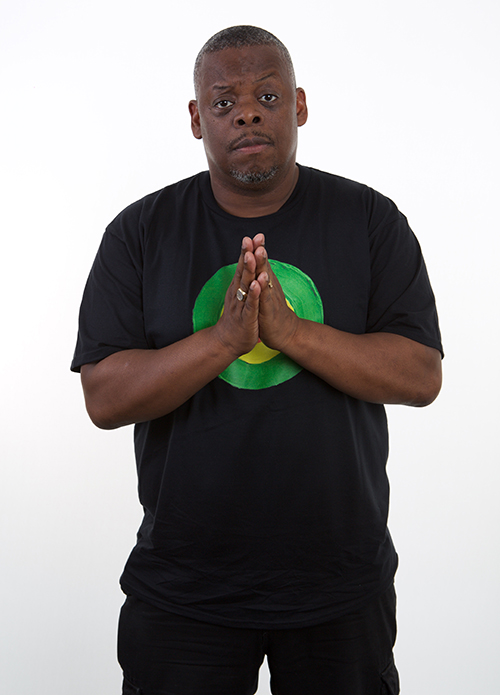 Well the sound itself wasn't the greatest. The sound system was a decent sound, but when they first started it used break down a lot. Musclehead would try to get the latest stuff, have a unique preamp and whatever. So the sound wasn't the greatest but it was decent. Then there was the music. Musclehead has probably got the most, apart from Rodigan, but even if you asked Rodigan who has got the most dubplates in this country he would probably say Saxon. But as you know, is not how many dubs you have is how you play them. But, saying that, he is a person that would cut tunes.
Well the sound itself wasn't the greatest. The sound system was a decent sound, but when they first started it used break down a lot. Musclehead would try to get the latest stuff, have a unique preamp and whatever. So the sound wasn't the greatest but it was decent. Then there was the music. Musclehead has probably got the most, apart from Rodigan, but even if you asked Rodigan who has got the most dubplates in this country he would probably say Saxon. But as you know, is not how many dubs you have is how you play them. But, saying that, he is a person that would cut tunes.
So we had a decent sound, you had the biggest collection of dubs that you could wish for, and then he had MCs that developed their own style and whole personality. Each one had a unique sound. Peter King was the first one out of us lot to double-time. Rather than the laid-back style of Josey Wales he double-timed it so it was quicker. How it happened around the sound was if somebody came with a style or a melody that was wicked then everybody would build their own style of that style. So mainly, it is the sound quality, the dubplates, the MCs. But then obviously what we created, is the originality of the MCs. We all wanted to be original. So the fast chat was just one of the things that the set us apart from the rest.
Because Colonel developed on top of that fast chat style.
Yeah, and made it even faster. With his roll tongue.
Take me through what the different personalities in Saxon brought to the table.
Papa Levi was the squadron leader. We saw him as our number one MC. Even though other people would say different. Some people would say me, everyone would have their favourites. But amongst the camp we used to look up to Philip as the squadron leader. The main man that would tackle any other MC. Levi was the radical. He was the one that rebelled and wasn't afraid to say "Fuck you Maggie Thatcher". Say whatever he felt and didn't care about the consequences.
And he's still a bit like that with his Gary Glitter lyric he came up with a few years ago!
Yeah! The Gary Glitter! That is Levi! He will just say what he is feeling and what he's thinking and you take it or you leave it. There are pros and cons to that but that is Levi. Colonel was unique because of the roll tongue. His style was unique because it was like 6 tongues. His style was "How do you roll your tongue Daddy Colonel?" With me, now, it was just the tone of voice and melodies and creativity. When it comes to styles and melodies that is where my forte was. And that's why I think I'm still here because I am very creative when it comes to melodies and I am very adaptable. Not to say that anybody else can’t - but I can adjust to different formulas, different genres, whatever it is.
And also good lyrical content, humour. I was more like the cheeky chappy kind of person in the bunch. Sandy was more of a serious dude. He was more straight to the point. Rusty was just different. Rusty was unique because his styles were unlike anybody else's. His melodies in his styles were just out there! Out of the box. Then you had Maxi Priest and Roger that were amazing because they're not brothers but they sounded very similar. That was unique in itself.
How did you first start to attract interest from Greensleeves and start recording for them?
Well the sound just started to become very popular. Everywhere we went the place just started to get full. People started to notice that. Levi had a hit in Jamaica with Mi God Mi King so once that blew up even more focus started to come on Saxon. People like Chris Cracknell and John from Dub Vendor who ran Fashion, they all started to home in on the talent that was around the sound. Greensleeves contacted us and they wanted to do a live recording with the sound. That happened and Chris Cracknell saw my talent and Colonel’s so he gave us a deal. In fact he signed all of us. So then we did Tippa Irie and the Colonel which was the first tune for Greensleeves. Then I did It’s Good To Have The Feeling You're The Best and then Complain Neighbour.
It is obvious what It’s Good To Have The Feeling You're The Best is about. It's about the sound and it's about yourself. But let's talk about some of the lyrics - did you actually watch Falcon Crest?
Yeah! You would, because at the time it was only those shows that were on TV. So you'd watch Dallas, Falcon Crest… if it was on you’d watch it. Or maybe I didn't, maybe it was just popular at the time. That's what you do. You think of something that rhymes with yes and bless "Crest, oh Falcon Crest". That's what we used to do. We used to just to piece things together that rhymed.
Because it's not necessarily all autobiographical. In the dance the lyrics are for everyone.
That's right. And a lot of the time those lyrics are not particularly about one thing or one topic. So it starts saying we control the dance north, south, east and west and is going off like that but then it says "My friend Bailey he is just effortless". That is how we use to write. Just make lyrics rhyme.
But you do spend a lot of that tune talking about piracy. Was anyone pirating you at the time?
Well, in those days, it was a crime. We were serious about that. If you were an MC you had to be original. He had to have your own style and your own melody. People used to point that out. If you were chatting somebody else's lyric, even though in Jamaica they didn't see it as a problem, over here we did. It's like I've got "All the time, the lyric I rhyme, lemon is bitter, no bitter like lime". Levi had that is one of his lyrics. And he was like "Tip, that is mine!" I said "No, it isn't yours. I thought of that. If you thought of it too then that's how it goes."
But he thought that I got it from him. So he made a point of it because that was like a sin for us to pirate somebody else's lyrics. At that time we used to write lyrics like "Them boy are fake because they can't originate". That is a tune actually! I should bring that back because I haven't recorded it! And it was a part of clashing. It was just a way of saying "You guys over there - you are fake. You're fake because you don't originate".
I know you found out later that people in Jamaica were copying your lyrics. But were any people in the UK copying you?
(Pauses) I don't know. I don't think so because there were a lot of guys that used to look up to us. Because, remember, we were like the Beatles of our scene. If I wore a pair of trainers, I had big men come up to me and say "Tip, man, you had on the same trainers as me. And the same hat.” And they were like "Yeah, look, Tip has got on our trainers". We were celebrities in the community at that time.
So it was more like a warning than a reaction to something that actually happened?
Yeah.
So tell me about Complain Neighbour. Again, it is obvious what the tune is about but tell me what sparked it?
Yeah, well, some of the stories are true. I used to go out with this girl and I was at her friend’s house. We were chilling and she was pumping her music loud! Then somebody threw something through the window! Which could have hit the youths and that. So it's actually in the song. I told a little story about it in the song. Because when that happened I thought "No, man. I have got to make a tune about this". At the time Smiley had Police Officer so I kind of built it off of that vibe. It was an incident that happened and the incident sparked the song.
It must've been nice to take a negative incident and turn it into a positive step in your career?
Yeah. This is it. And I try to do that even today. A lot of the songs that I write are just experiences. Things that you go through. And for me that's why the new album is Living The Dream, because I am. Because I have got a good life and when I see people out there and what they're going through I appreciate what I have. Because there are a lot of people out there that have a lot less. I should have a lot more because right now my tunes should be on Radio 1 and Capital and all the stations because they're good tunes. But I am still doing a hell of a lot better than a lot of people so I still have to give thanks. Because I can do it all myself. I can manufacture my stuff and do whatever.
Which was the first place that you went abroad to with the sound?
Probably France. When the tunes started to take off we went to do shows over in France. I don't know if it was the sound or as Tippa Irie. It was Blue Moon who were the company. I think I might have gone over there with Tippa Irie and the Colonel. Or maybe it was when I did Is It Really Happening To Me - the first album. I think it was then that I started to go over and then Hello Darling started to take off. It's hard to remember it all, Angus!
But we went over to France because that is where I wrote Is It Really Happening To Me "I am taking aeroplane like it's a taxi". I started to go to a lot of the European countries and then Saxon went to New York. Then they took me to Sting in ’86. The same year as Hello Darling took off. That was crazy. That was amazing. I went with Policeman Laing at the time. The guy that does Sting now. The same guy. He brought me over there.
What was Sting like back then? Because obviously now it has a reputation for being rough!
No, it was more chilled man. It was nothing like it is now. It was a nice show. Because Hello Darling was big in Jamaica so I went down pretty well.
In continental Europe what kind of audience was coming out to watch you? Were there any Caribbean people there?
Just a few. But you had expats. When we went to Germany there are a lot of soldiers. We went to Germany and played at the army bases. And obviously you've got to remember that in places like France there are lots of people from Africa.
People from West Africa?
West Africans yeah. Those places. There were quite a few these people at the gigs. And then you just had the French people that love reggae music.
Did you get to meet any hip-hop people the first time you went to New York?
Not really. I met Sister Carol. I think I might've met Shinehead. And we were clashing against Johnny Ringo, Papa Toyan and all these people. There was Addies, Third World, these sounds that we were playing against. We were there for about four weeks in Brooklyn so that was interesting. Because there were a lot of drug dealers who brought us to New York to do the shows so it was a bit scary at times! You're driving to a dance with guns in the van and you're thinking "What am I doing here? Why am I going to these dances with these people? If the police pull us over how can I say one of these guns isn’t mine?" But we did it because I guess we were young and naïve. We were 19 it was just one of those things that happened at the time.
So let's talk about Hello Darling. It was inspired by an encounter that happened at People's club?
Yes.
And then you came up with it when you were in studio doing another tune with Greensleeves?
Yes. I was doing Good To Have The Feeling You're The Best and there was a break in the recording so I started to sing Hello Darling. Chris said "Tip, what's that?" I said "It’s a tune that I was vibing on the other day". He said "Go home and write it". So I did.
Patrick Donegan from Reggae Regular was involved in the Hello Darling session. You had done a combination with Reggae Regular called Black Star Liner. Ciyo was involved in the session. He is kind of known for doing that kind of jazzy reggae thing today. Where did that jazzy swing come from?
I guess it came from me. I used to just be that creative really when it comes to melodies. Because it was an original style. It wasn't like I was listening to anything and saying "We want it to sound like that".
But did you listen to jazz at all?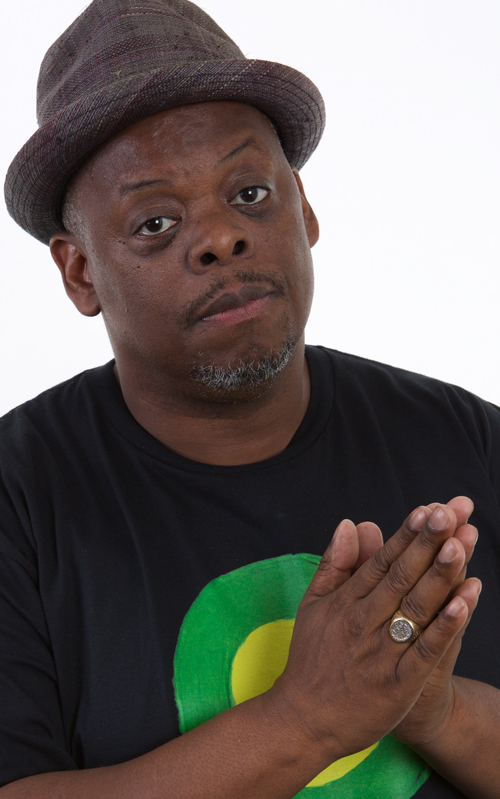 No, it just came. Because it was the soul. We just have that natural soul in us. So I think it just came out that way. Because I am not a singer. I don't see myself as a singer like Peter Hunnigale or like Lloyd Brown. My style is more of a singjay kind of vibe when I sing. I think coming from the sound it's like "In the USA… I was out walking…", it's kind of like a spoken kind of vibe. But with the soul kind of feel. With a melody kind of feel. It came out that way and Lindel Lewis, who was the producer, he just made that kind of drumbeat. From there we just got Ray Carless in and Ciyo and it started to come together.
No, it just came. Because it was the soul. We just have that natural soul in us. So I think it just came out that way. Because I am not a singer. I don't see myself as a singer like Peter Hunnigale or like Lloyd Brown. My style is more of a singjay kind of vibe when I sing. I think coming from the sound it's like "In the USA… I was out walking…", it's kind of like a spoken kind of vibe. But with the soul kind of feel. With a melody kind of feel. It came out that way and Lindel Lewis, who was the producer, he just made that kind of drumbeat. From there we just got Ray Carless in and Ciyo and it started to come together.
It became an underground hit and then David Kid Jensen heard it and took it to Capital?
Yeah. I think Greensleeves sent it out all the clubs. He must've heard it in a club. And he said "This is a hit". He brought it to Capital and put it on the playlist. And it took off from there.
And that led to you being invited on Top Of The Pops?
Well once it came out it went straight to number one in the reggae charts. It was selling and then boom it just took off. It went to number 20 in the national chart.
Who was on Top Of The Pops when you were on there?
Samantha Fox was there. I can't remember who else! I just remember her! I was there with Ciyo, Lindel and Ray.
So then you were offered a major label deal after that? With Polydor?
It was Polydor. But obviously me being me, I was loyal. I was signed to Greensleeves and I was happy there. So I didn't really pay any mind to Polydor. I just thought "Oh, that's nice". I just stayed there. Maybe I should have gone. Because Greensleeves weren’t very loyal. When they were ready to go they just went.
So what happened? Did the next tune not do as well?
Heartbeat did okay. That got to number 56 which is decent. Respectable. Then Chris Cracknell had a brainwave that we should try to do a song is similar to Five Star. Which was Panic Panic. But Panic Panic flopped. But I guess that's me and management - we should've said "No. I’m not doing that. I want to keep to the same style as Hello Darling". Really that is what he should've done because Heartbeat was similar to Hello Darling and got to 56 so maybe if we had kept on and done the whole album in that vein? But he just wanted to get the album out quick. It just flopped and it just went downhill from there. Because they're not loyal. Greensleeves weren't loyal to any of the artists. It is a business. Whoever was hot. Whoever is the new thing that is coming in, that's what they latch onto.
They didn't give you second or third chances?
No. We did one album. How many albums did I do for Greensleeves? Just one! Is It Really Happening To Me? That was it. Hello Darling was ahead of that. We had a couple of tunes before like Tippa Irie and the Colonel and those ones we spoke about. And then we did Is It Really Happening To Me but he was the one that made these decisions. Because I didn't know anything! I was thinking "Why do you want to do a tune like Five Star? I'm not Five Star". He got this guy in with all these pretty keyboards but anyway the tune flopped. They moved on to Mr Vegas or whatever.
How did you part company with Greensleeves?
Well we just left. Me and Grantley, my manager at the time, we set up our own thing. GT Records. Then we did Ah Me Dis and Two Sides of Tippa Irie. Them at Greensleeves - Chris Sedgwick was all right. But Cracknell was not a loyal guy. I think they were a bit ungrateful. I mean, I am grateful for the opportunity but the opportunity came because of my talent. Because if I couldn't deliver then they wouldn't have taken me on board.
And I was loyal to them. When Polydor came along I could've said "Chris man, you need to let me out of this contract. I want to go with them. The big company." But I was loyal to them and when it came to them being loyal to me - they weren't. All of a sudden they just stopped. They just stopped dealing with the UK artists. After Deborahe Glasgow.
But the live shows kept coming. After Sting you did Reggae Sunsplash 1987.
Sunsplash was great. I did it with Pato Banton. Me and Pato had the same manager, Grantley. GT Haynes. Basically, he was doing quite well in America and I was doing well because of Hello Darling so Grantley said that we should do it together so I said "Cool". I brought Pato with me and we rehearsed with the Sagittarius band. Hello Darling was big so the show went down well. We were tight. We had some combinations together that we had written. One called Them No Know ‘Bout Pressure and one called Walk On The Spot and one called Double Trouble. We did a couple of them and I did Hello Darling and he did a couple of his tunes. I think this must have been ’86 or ’87.
You also travelled to Jamaica separately with Saxon? That was when you realised that the MCs in Jamaica were using some of your lyrical content.
Yeah. Because you are going you would see Peter Metro chatting your lyrics. Chatting "Police inna England" and all these things that came from our sound. So yeah, it was nice. And it was nice to be at the side of the stage and here Yellowman saying It’s Good To Have The Feeling You're The Best. I was thinking "Yeah, okay". That was Yellowman.
So tell me how you came into contact with Peter Hunnigale and went to Fashion Records?
Peter was in ‘89. Commander B had a brother who is an engineer. Fitzroy Blake. He mixed In This Time, Peter Hunnigale's first album. Fitzroy and Peter were good friends. So because of my connection with Paul, Commander, and Fitzroy's connection with Peter we met that way. Now Junior Sandy used to go "Rice! Peas! Chicken and stuffing! Saxon Sound! Is the original ragamuffin!" I just took that melody from what he used to say and made a song out of it. That is how Ragamuffin Girl came about. Fitz was like "What's this you lot are talking about?" I said "Just cool man - just make we do the tune". We got Commander B and Flutie who were Clarkey and Blakey - that was the label. We put it out and that went straight to number one.
This wasn't the first time that people questioned your idea for a hit tune. You also had to stick to your guns when doing Hello Darling as well.
Yeah, that's right! We did Hello Darling, Levi and all those guys laughed at me! They were laughing. Levi was on his ego trip at that time because he had Mi God Mi King. He was like "Yo, you'll never be bigger than me, Tippa". All in good humour but I was like "Alright, cool. It's alright Phil, no worries". I played them Hello Darling and they were like "Where are you going with this thing? No man! This too commercial!" I said "Okay, no problem". Straight to number one. And I went back to them and said "What have you got to say about that now?" And then boom! Straight to the national chart! "What have you got to say now?" They couldn't say anything!
Tell me a bit about how you linked up with Lloyd Brown and did another series of singer and deejay combos?
The Groove and a Quarter mob? It’s difficult to remember how I met Lloyd. I think it was because Lloyd was in a sound called Exodus so I knew him from those times. Those guys were doing their productions and they said "This needs an MC". Of course one of the people that they thought of in the UK is me because that year before that I had a hit with Winsome which was Superwoman - the same year as Ragamuffin Girl. So when they did It’s A Love Thing they thought of me. Groove and a Quarter linked me and said "Tip, boy, we want you to bless this tune you know?" I listened to it and I thought "This might be a hit". So I went and put my vocal on it. That was the first one we did.
That did well in the reggae charts and soon after me and Lloyd became friends and we did Stress. That tune blew me away straightaway because when I went to the studio and I heard the production and the harmonies I thought "Wow, this is going to be a hit!" So straightaway I started to write my little section and when that came out it went straight to number one as well. That was another good break for me. Because I'd seen Lloyd out on the circuit because he had tunes like Sharing The Night and Love You Down which were popular tunes. We always knew of each other through sound system and on the circuit but they called me to do It’s A Love Thing so the bond became strong from there.
Today, Lloyd is someone who similarly independently minded in how he does his music. Was that something you saw in him at the time?
Yeah, we're doing our own thing. Obviously, we had the thing where we got signed to Arista.
You had a bad experience there didn't you?
Yeah. The guys who signed us, Chris Hill and his mate. These guys were soul heads. They loved black music. They love reggae and lovers rock music. So they gave us a deal and then this guy came in, a black guy and the first thing he showed us was TLC Waterfalls. I thought "Okay, we've got a brother here. We might be alright". We did that tune called Baby Mother. We got Peter to do a reggae cut and produce it. Delroy Murray did a remix on a rare groove rhythm of the tune. So that was good. We made little video for it but that was it.
They didn't do anything after that. We went to a couple of their seminars and met a couple of their other artists but they didn't do anything with us after that. I don't know if those guys were still there. They probably lost their jobs. But the guy that came in to see us that we thought "Yeah, we've got a brother with us", he was not with us basically! So it just didn't work. We moved on after that. We did a combination album called Combination with me and Lloyd together. I think that was for Tex Johnson. We kind of went our separate ways after that really.
You also got signed to Island Records at the start of the 90s. What happened there?
I got two albums with Island. One was called the Original Raggamuffin and one was called New Decade. I did the Original Raggamuffin first and then I did a New Decade with Peter Hunnigale. I did the album with them and it got quite popular in Japan so I went out to Japan to do some shows with me, Sweetie Irie and Peter Spence. We did some shows in Tokyo in and Osaka. The album did alright over there because it was on Island to add some distribution out in these places.
But again, they just didn't do anything. They didn't do anything. They had U2, they had Mica Paris but they just didn’t do anything with us. It was the same thing. They put out the first album and I delivered the second album with me and Peter on there. We got some nice posters on this but they didn't do anything. They didn't make a video. They didn't give us the proper push.
People look at the 80s as a time when black British music really flexed its muscle in the world. London was a centre of the reggae. People coming over from Jamaica wanted to record there.
You had Soul II Soul. Maxi Priest.
So what happened? Why are you all on your own now?
I think it's, if you look at it, a lot of the people have jumped ship. You've got maybe Mad Professor, Ariwa, he’s still around. Greensleeves, John and Dub Vendor, jumped ship. And there is no Jetstar - all of that is gone as well. The distribution is gone because everything has gone online. Since the download thing coming in as well a lot of the industry is gone. Because I have just done a tune with Papa Crook, Hey Fatty Boom. And if I had that tune in 1984 I know we would be rubbing our hands together right now because we got a hit on our hands. We’d know that we could make money. These guys like Dub Vendor, they’re businessmen. John is a nice guy but he is a businessman. Cracknell and them, these are business people. So from when they could see that there is no business for them anymore, they've gone.
In the 80s you had proper record companies. You would go into Greensleeves and there was staff, there is A&R, there is somebody dealing with business, there are people getting the stuff out to shops. So I don't know. Maybe because the companies, the infrastructure, when these people left, the infrastructure wasn't there? Because I'm not set up like a proper record company now. I am a label but I don't think there's enough of that kind of organisation. And I think that's what let the thing disperse and not be as strong as it was in the early 80s.
Did peoples taste just move on? Was it just trendy in the mainstream to like black British music at that time?
No. I think the music has always been there and it always is there. It is controlled isn't it? I mean, there's not even a black sitcom on TV. Because everybody's on the social media so it's not like they don't see or they don't think what is it? And you can go to them with your product but are they going to take it and put on a playlist?
READ PART 3 OF THIS INTERVIEW HERE!




